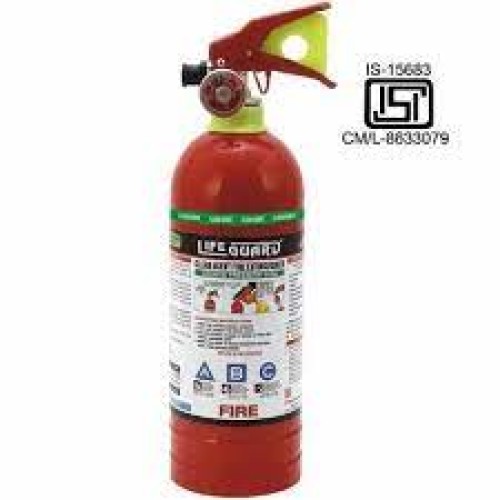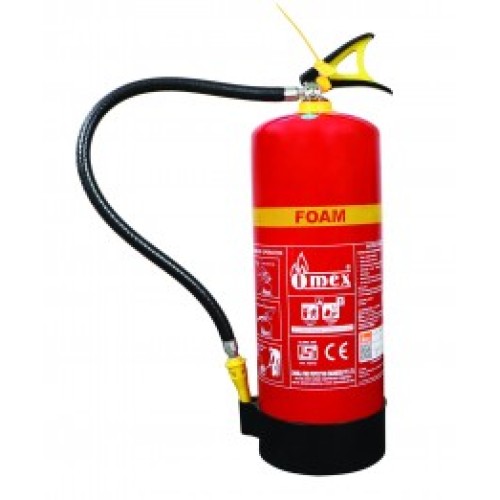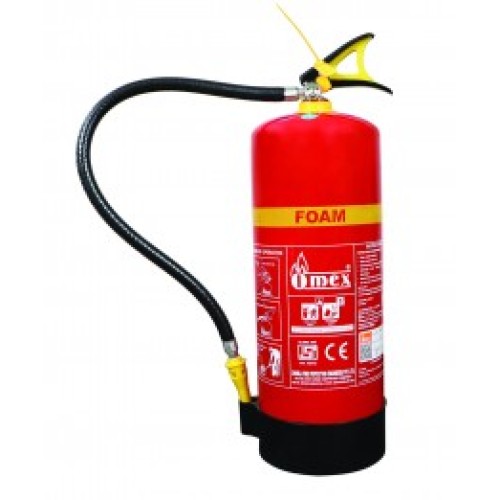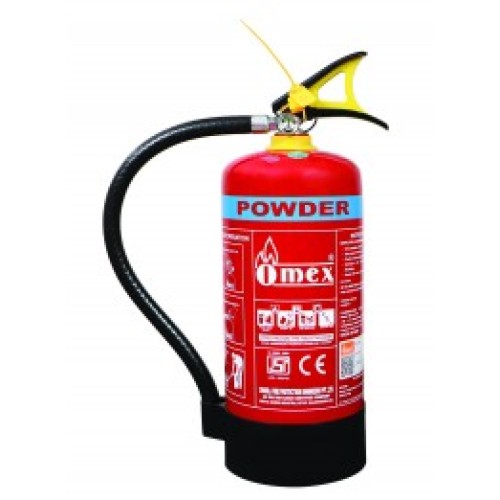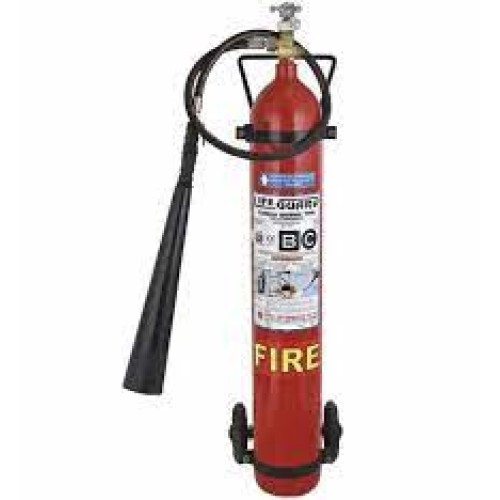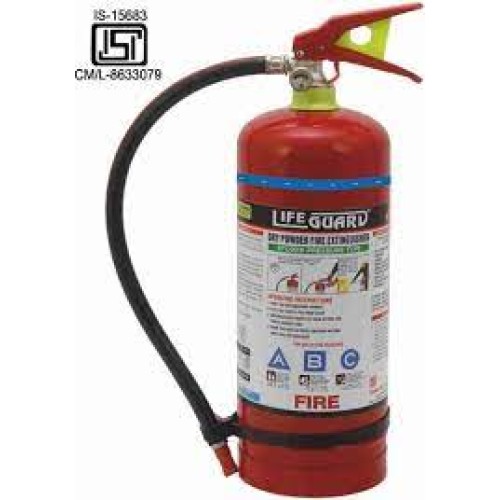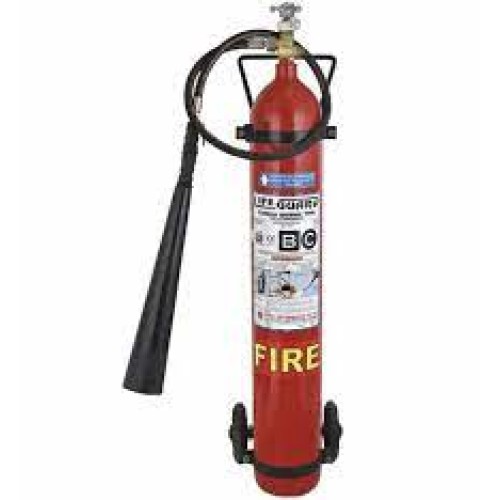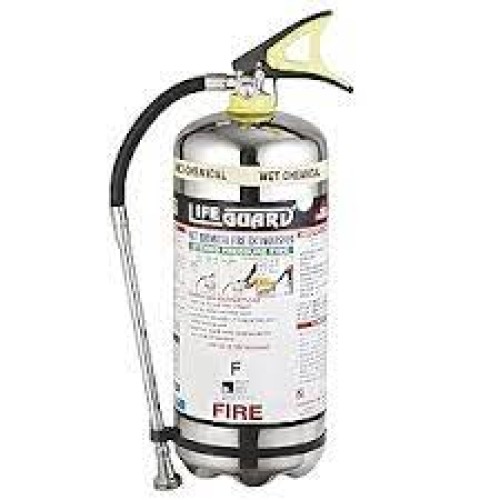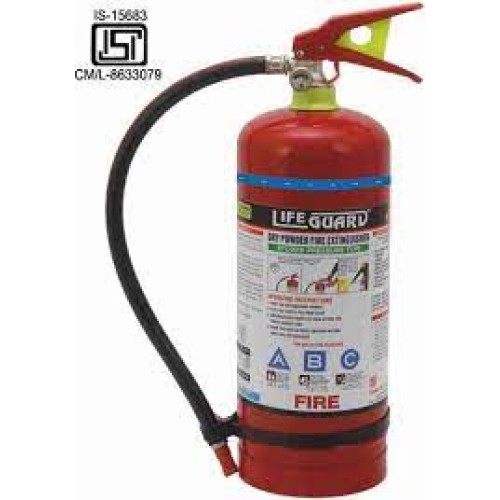Fire Extingusihers
The Omex 9L Mechanical Foam Fire Extinguisher is a larger and more powerful version of the 6L model, designed to provide an enhanced firefighting solution for environments where both Class A (solid combustibles) and Class B (flammable liquids) fires are a risk. With its 9L capacity, this extinguisher is ideal for larger areas or commercial spaces where greater fire suppression power is needed.
Key Features:
9L Capacity:
The 9-liter capacity refers to the volume of foam contained in the extinguisher, offering a larger discharge than the 6L model. This makes it more suitable for larger spaces or more intense fires, providing extended firefighting capability.
The increased volume of foam ensures more effective and longer-lasting fire suppression, particularly in large or spread-out fires.
Mechanical Foam Agent:
The mechanical foam is a combination of water and foaming agents that work to suppress fires. When discharged, the foam creates a layer that cools the fire and blocks the oxygen supply, extinguishing the flames.
This foam is effective on Class A (solid combustibles) and Class B (flammable liquids) fires, making it a versatile choice for a variety of fire risks.
Class A and B Fire Protection:
Class A Fires: These involve solid combustibles like wood, paper, rubber, textiles, and plastics.
Class B Fires: These involve flammable liquids such as gasoline, oils, solvents, paints, and chemicals.
The Omex 9L Mechanical Foam Fire Extinguisher is versatile and suitable for use in environments where both solid and liquid fire hazards exist.
User-Friendly Operation:
The extinguisher is easy to operate, even for those without extensive firefighting training. It follows the standard P.A.S.S. method (Pull, Aim, Squeeze, Sweep), allowing users to respond to a fire efficiently and effectively.
The nozzle or horn is designed for precise discharge, directing the foam accurately at the base of the fire.
Cylinder Construction:
The Omex 9L Foam Fire Extinguisher is housed in a durable steel or aluminum cylinder, which ensures that the extinguisher can withstand the pressure of the foam and can be easily transported and stored.
The construction also ensures that the extinguisher is resistant to damage, ensuring reliability in an emergency.
Certified and Safe:
This extinguisher is typically CE certified and conforms to EN3 standards, ensuring that it meets safety and performance requirements.
The certification confirms that the extinguisher has passed rigorous tests for safety, quality, and reliability.
Discharge Time and Range:
The Omex 9L Mechanical Foam Fire Extinguisher offers a relatively extended discharge time and range, making it suitable for dealing with larger fires or fires that may spread rapidly.
The foam is discharged in a controlled manner to ensure that it covers the fire’s surface effectively and for an extended period.
Applications:
Large Residential Spaces: The 9L foam extinguisher is ideal for larger homes or properties with multiple rooms and areas that could be exposed to fire risks, such as kitchens, garages, or storage rooms.
Commercial Kitchens: In commercial kitchens where cooking oils, fats, and other flammable liquids are used, a larger foam extinguisher like the Omex 9L is suitable to combat fires that may involve these types of substances.
Workshops and Industrial Spaces: This extinguisher is perfect for workshops, factories, and storage facilities where both solid combustibles and flammable liquids are present, providing the necessary firefighting power for larger or more dangerous fires.
Offices and Public Areas: In offices, retail stores, public spaces, or warehouses, the 9L foam extinguisher can handle the variety of fire risks, including paper or textile fires (Class A) and chemical or liquid fires (Class B).
Send
Message
